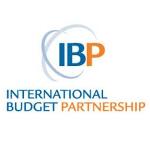-
Advocacy Theme
-
Tags
- Abortion
- Adoption
- Caregiving
- CEDAW
- Disability
- Domestic Violence
- Domestic Workers
- Harassment
- Healthcare
- Housing
- International/Regional Work
- Maintenance
- Media
- Migrant Spouses
- Migrant Workers
- Muslim Law
- National budget
- Parental Leave
- Parenthood
- Polygamy
- Population
- Race and religion
- Sexual Violence
- Sexuality Education
- Single Parents
- Social Support
- Sterilisation
- Women's Charter
More than bookkeeping – Budget advocacy for CSOs
November 5th, 2013 | Children and Young People, News, Older People and Caregiving, Poverty and Inequality, Views
 On 20-24 October 2013, AWARE’s Research and Advocacy (R&A) Coordinator, along with two volunteers from AWARE’s committee on formulating recommendations for Budget 2014, attended a Budget Analysis and Monitoring workshop for South East Asian Civil Society Organisations (CSOs) in Jakarta.
On 20-24 October 2013, AWARE’s Research and Advocacy (R&A) Coordinator, along with two volunteers from AWARE’s committee on formulating recommendations for Budget 2014, attended a Budget Analysis and Monitoring workshop for South East Asian Civil Society Organisations (CSOs) in Jakarta.
The five-day workshop was organised by a Jakarta-based budget advocacy non-profit, SeknasFitra, in collaboration with the International Budget Partnership (IBP) and sponsored by The Ford Foundation. CSOs from Singapore were represented by the AWARE team and the Director for the Centre for Research on Islamic and Malay Affairs (RIMA). We were joined by colleagues from Myanmar, Vietnam and Cambodia.
As one of the most important economic policy tools, the nation’s budget allocations determine how policies meet society’s varied needs, from healthcare and education access to reducing income inequality. The budget thus has a significant impact on vulnerable groups such as older people, children, poor people and disabled people. As a key link between communities and policymakers, CSOs play a critical role by monitoring and engaging in the national budget process. By foregrounding the needs and concerns of the communities they work with, CSOs help members of these communities gain representation in the budget process.
The workshop provided a detailed overview of the general Budget Cycle, including the key stages of the budget process, the relevant stakeholders involved at every stage, and the key budget documents that are produced. Participants were shown a ‘Best Practices’ model for the Budget Cycle and given the opportunity to draw comparisons to their own country’s national budget, as well as to identify the key processes and timeline for the implementation of budget programmes.
The workshop also outlined various ways that CSOs can get involved in the budget process. There are several budget analysis tools CSOs can use, such as conducting a socioeconomic analysis of the budget to understand the impact of new programmes and policies, organising discussions with community representatives, and conducting surveys with community members.
Participants examined case studies from Tanzania, India, Mexico, and Argentina. In each of these countries, CSOs have attempted to resolve misallocation of public funds through budget advocacy, using tools to track and monitor public expenditure and engaging key stakeholders such as local government leaders, the media, and grassroots organisations.
At AWARE, we will strongly consider using some of these methods to offer recommendations for forthcoming Budgets. We hope to engage more with community stakeholders through focus group discussions and to partner with other CSOs in Singapore to better understand how current policies and programmes have been meeting needs, while identifying areas which require more attention. This type of outreach and research will enable us to better formulate a set of budget recommendations that allows for a more inclusive and equal society.
Please click here to see AWARE’s recommendations for the Singapore Budget 2013.




